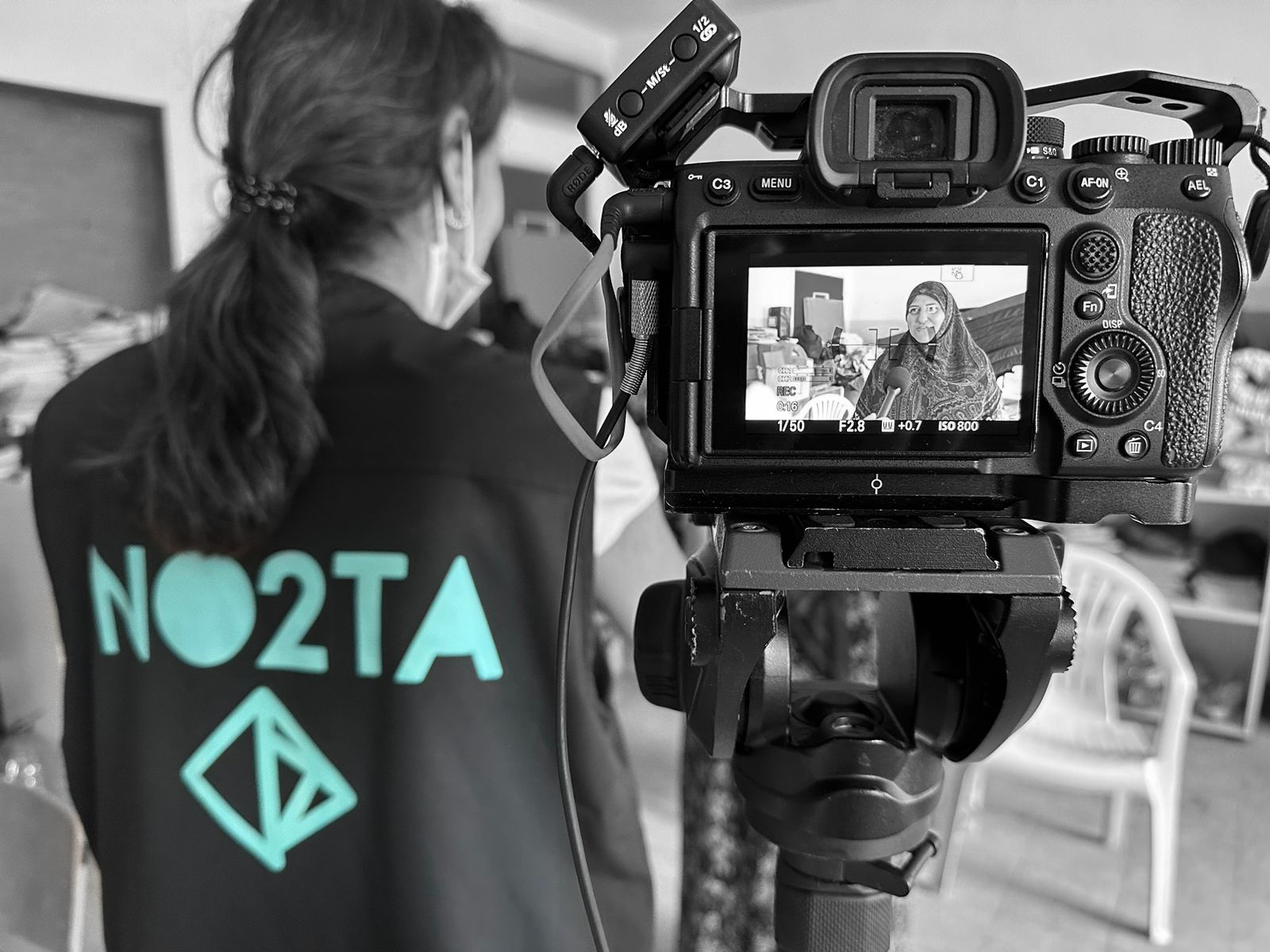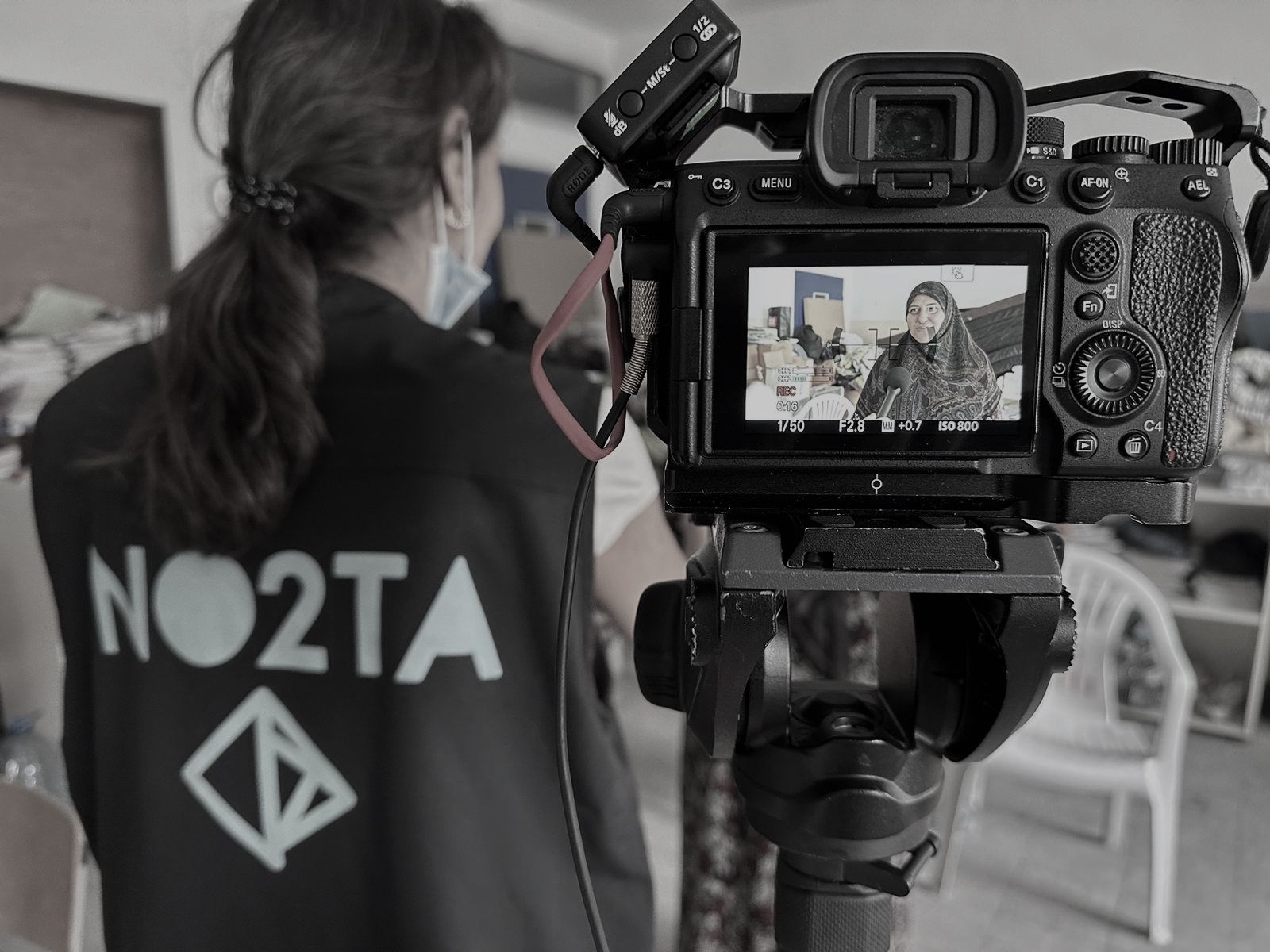War on Lebanon: Women at the Forefront of the Crisis
No2ta Team
Lebanon is facing one of its most severe humanitarian crises in decades as relentless Israeli airstrikes and escalating violence ravage the country. South Lebanon, the Bekaa Valley, Beirut’s suburbs, and the capital’s heart, along with other Lebanese regions, have been heavily hit, displacing over 1.2 million people, including hundreds of thousands of women and children.
In one year, between October 8, 2023, and October 8, 2024, Israeli attacks have killed 2,169 and injured 10,212, according to Lebanon’s Ministry of Health. International organizations, including the United Nations and various humanitarian agencies, have issued urgent warnings, describing the humanitarian situation as a catastrophe in the making.
Thousands of families have been forced to flee their homes with nothing but the clothes on their backs, seeking refuge in overcrowded schools, unfinished buildings, and makeshift shelters. The strain on already fragile resources is overwhelming, and the scale of the crisis is beginning to surpass the capacity of emergency relief efforts.
Over a million people have been displaced, with approximately 520,000 women and girls now seeking refuge. Of these displaced families, 12,000 are headed by women, according to UN Women’s estimates.
Heaviest Burden on Women
In times of war, women and girls bear the heaviest burden, and the ongoing war in Lebanon is no exception. The impact on women is both physical and emotional, with displacement exacerbating existing vulnerabilities. For many women, this war is a painful echo of Lebanon’s past wars, a reminder of the systemic neglect and violence.
One displaced woman from Qaaqaiyat al-Jisr in southern Lebanon shared her story with No2ta: “I left with my two children and my mother after a nearby park was targeted by an airstrike. We spent 24 hours in the car with my infant. You cannot imagine what it was like.”
Women are disproportionately affected by the lack of protection, healthcare, and basic resources. Many find themselves forced to take on greater responsibilities in the absence of state support. “Most of us left our homes without any belongings, without clothes, or even sanitary supplies. Many of us are pregnant,” shared one woman from Tyre. “In the absence of government intervention, I had to volunteer in the school to record the women’s needs, organize aid, and communicate with initiative leaders.” While these women step into roles that fill urgent gaps, they too are struggling to survive.
Women are not only the primary caregivers but also the most vulnerable to exploitation and gender-based violence in war zones. The current humanitarian efforts must address the gendered realities of this war, ensuring that women’s voices and needs are prioritized. This means providing access to essential healthcare, protection from violence, and adequate sanitation facilities.
A mother from Kafr Sir recounted her experience during previous wars, noting how the absence of gender-sensitive solutions continues to affect women’s dignity: “This is my second time being displaced to a school, but this time is harder with my three daughters. What bothered me most before was sharing a bathroom with over 30 women. Now, it’s the same.” The lack of adequate support and infrastructure leaves women to endure conditions that threaten their physical and mental well-being. .
A Country in Freefall
The broader picture of Lebanon’s struggle is one of extreme vulnerability, deepening by the day. Over 4,000 residential buildings have been completely destroyed by Israeli airstrikes, leaving families without homes or belongings. Lebanon’s public infrastructure, already on life support due to years of political instability and economic collapse, is unable to accommodate the massive surge in internally displaced people (IDPs). The system is already fragile, and the situation is now pushing it to the brink.
Currently, nearly 190,000 displaced individuals are staying in over 1,000 collective centres across the country. Hundreds of thousands more have sought refuge with family or friends or have fled to Syria. Schools have been repurposed as shelters, leaving over 400,000 displaced children deprived of education.
The healthcare system is equally overwhelmed. Over 100 primary healthcare centres are out of service, and 12 hospitals are either closed or only partially functional. Children, already facing the trauma of displacement, are deprived of education. Many schools have been destroyed or repurposed as shelters, and the country faces the growing risk of losing an entire generation due to the lack of access to education.
The United Nations, alongside the World Food Programme (WFP) and UNICEF, has acknowledged the growing magnitude of the disaster.
No2ta’s Role on the Ground
In this devastating context, feminist organizations like No2ta and the Feminist Lab are providing both humanitarian relief and advocacy. No2ta remains committed to amplifying women’s voices through content production and advocacy, while also stepping in to support displaced women and girls.
Aliaa Awada, managing director of No2ta, emphasizes the importance of feminist approaches in humanitarian work: “Our focus as media production lab is to be the voice of women, and building content from the ground. But we are also addressing urgent humanitarian needs. Our efforts on the ground include distributing hygiene products, such as sanitary items, which are urgently needed in the shelters. To date, we have reached 200-300 families in Beirut and Mount Lebanon, ensuring that women’s immediate needs are met.”
One displaced woman from Zahrani shared the strength and resilience that many displaced families hold onto: “I will return to my home, even if it is rubble and ash. I left voluntarily on Monday morning. I left my husband and son behind because they work with civil defence in the area. But I have great hope that I will return to them.”
Yet the reality is that the shelters where many of these women have sought refuge are not fit for long-term habitation.
“I was shocked when I arrived at the school; it wasn’t ready, it wasn’t clean, and there were no mattresses or blankets,” shared a woman displaced from Ansar. “The government had enough time to prepare for the displaced a year ago, but it did nothing. We’ve been left to the charity of others. During the first nights in the school, we slept on the ground.”
It is essential that feminist organizations like No2ta continue to provide not only emergency relief but also advocacy, pushing for a more comprehensive and gender-sensitive humanitarian response.
Feminist Approach to Humanitarian Aid
With no end in sight to the war, and winter fast approaching, the need for immediate ceasefire.
Women and children face the greatest risks—both from the ongoing war and from the systemic inequalities that arise in times of crisis. These inequalities expose them to exploitation, gender-based violence, and the severe consequences of deprivation.
If this crisis is to be addressed effectively, it will require a strong feminist response that takes into account the unique needs of women in war, focusing on dignity, autonomy, and long-term recovery. Without this, Lebanon risks losing not only its homes and infrastructure but an entire generation of women and girls.
In times of crisis, the call for gender justice becomes louder. It is critical that international actors prioritize the unique needs of women and girls in their humanitarian interventions.
Organizations like No2ta are not only providing immediate relief but are also shaping the narrative around women’s rights in times of war.
Our work demonstrates that feminist organizations must continue to play a key role in advocating for a just and equitable future for all, one that honours the resilience and dignity of those who have been pushed to the margins.
Our call for humanitarian intervention and an immediate ceasefire echoes our ongoing demand to prioritize human lives and end the continuous cycle of violence and atrocities




